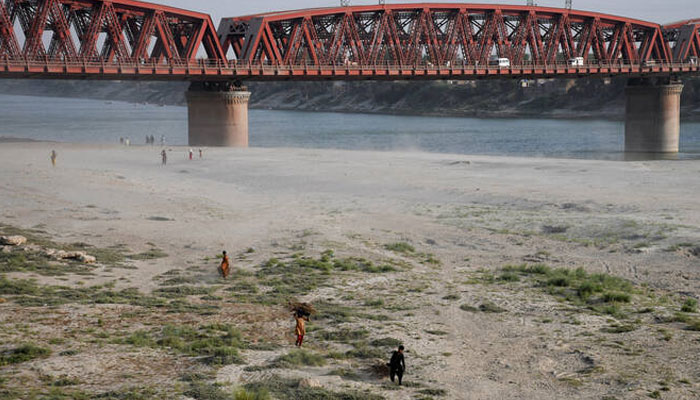
India will not reinstate the Indus Waters Treaty (IWT) with Pakistan, and the water currently flowing to Pakistan will be redirected for domestic use, Home Minister Amit Shah stated in an interview with The Times of India on Saturday.
India put into “abeyance” its participation in the 1960 treaty, which governs the usage of the Indus river system, after 26 civilians in Indian Illegally Occupied Jammu and Kashmir (IIOJK) were killed in what Delhi described as an act of terror.
The treaty had guaranteed water access for 80% of Pakistan’s farms through three rivers originating in India.
Pakistan has denied involvement in the incident, but the accord remains dormant despite a ceasefire agreed upon by the two nuclear-armed neighbours last month following their worst fighting in decades.
“No, it will never be restored,” Shah told the daily.
“We will take water that was flowing to Pakistan to Rajasthan by constructing a canal. Pakistan will be starved of water that it has been getting unjustifiably,” said Shah, referring to the northwestern Indian state.
The latest comments from Shah, the most powerful cabinet minister in Prime Minister Narendra Modi’s cabinet, have dimmed Islamabad’s hopes for negotiations on the treaty in the near term.
Last month, Reuters reported that India plans to dramatically increase the water it draws from a major river that feeds Pakistani farms downstream, as part of retaliatory action.
Pakistan’s foreign ministry did not immediately respond to Reuters’ request for comments.
But it has said in the past that the treaty has no provision for one side to unilaterally pull back and that any blocking of river water flowing to Pakistan will be considered “an act of war”.
Islamabad is also exploring a legal challenge to India’s decision to hold the treaty in abeyance under international law.







